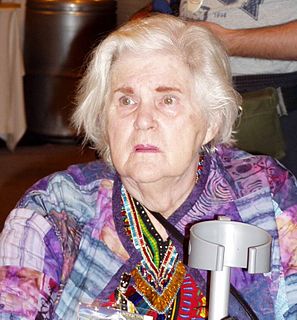A Quote by George Saunders
On a more technical level, a story takes a lot of words. And to generate words and phrases and images and so on, that will compel the reader to continue reading - that stand a chance of really grabbing a reader - the writer has to work out of a place of, let's say, familiarity and affection. The matrix of the story has to be made out of stuff the writer really knows about and likes. The writer can't be stretching and (purely) inventing all the time. Well, I can't, anyway.
Related Quotes
It is easier for the reader to judge, by a thousand times, than for the writer to invent. The writer must summon his Idea out of nowhere, and his characters out of nothing, and catch words as they fly, and nail them to the page. The reader has something to go by and somewhere to start from, given to him freely and with great generosity by the writer. And still the reader feels free to find fault.
As a reader, when the writer gets sentimental, you drift, because there's something fishy going on there. You recognize a moment that's largely about the writer and the writer's own need to believe in something that might not in fact exist. As a reader, you think, 'Where did the story go? Where did the person I'm reading about go?'
If you want to be a fiction writer, you need to start reading like a fiction writer. To do so, you need to learn about craft so that the next time you pick up a contemporary short story, you're reading it not as an abstraction floating in formaldehyde, existing simply for the theorist's dull scalpel to saw on, but as a concrete thing constructed out of words and shaped by syntax, brought to life by a writer who made several thousand choices, some large, some small, before letting that imperfect beauty, the story, walk on its own two feet.
Two kinds of reading can be distinguished. I call them reading like a reader and reading like a writer ... when you read like a reader, you identify with the characters in the story. The story is what you learn about. When you read like a writer, you identify with the author and learn about writing.
There's an old adage in writing: 'Don't tell, but show.' Writing is not psychology. We do not talk 'about' feelings. Instead the writer feels and through her words awakens those feelings in the reader. The writer takes the reader's hand and guides him through the valley of sorrow and joy without ever having to mention those words.
I think the trick of being a writer is to basically put your cards out there all the time and be willing to be as in the dark about what happens next as your reader would be at that time. And then you can really surprise yourself. There's that cliche, "No surprise for the writer, no surprise for the reader!"
That underscored this idea that when we're reading a book or writing a book, you're in an act of co-creation. The reader and the writer are both trying to dress up and present their best selves and then there's that moment, when suddenly, as a reader, you're not exactly you anymore, and likewise, as a writer, you're not really you.
How often I have tried to tell writing students that the first thing a writer must do is love the reader and wish the reader well. The writer must trust the reader to be at least as intelligent as he is. Only in such well wishing and trust, only when the writer feels he is writing a letter to a good friend, only then will the magic happen.
We must be forewarned that only rarely does a text easily lend itself to the reader's curiosity... the reading of a text is a transaction between the reader and the text, which mediates the encounter between the reader and writer. It is a composition between the reader and the writer in which the reader "rewrites" the text making a determined effort not to betray the author's spirit.
I've learned a lot about language from reading slush. You can immediately tell if a writer is in control of the narrative. This writer will avoid using too many words like "possibly," "probably," "maybe," "perhaps," etc. He/she will avoid using clichés, as well as a lot of metaphors, and won't take four sentences to say what they could in one (or write a great sentence and follow it up with a bunch of stuff that just weakens it).




































